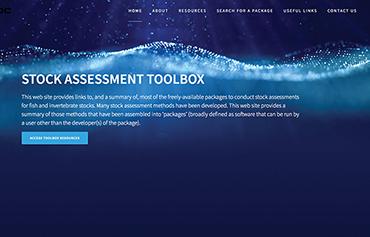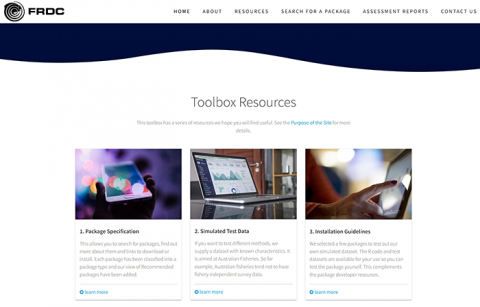Stock assessments are the cornerstone of sustainable fisheries, and the latest stock assessment Toolbox update goes a long way to helping scientists assess fish stocks.
Stock assessments are an important element in the process of providing fisheries managers with the right information to help measure and assess a fish stock and help identify trends influencing future stock levels. These assessments also help contribute to the Status of Australian Fish stocks reports and help each sector know if a fish stock is sustainably fished, overfished or somewhere in between.
This process requires knowledge of the fish population (growth, natural mortality, and recruitment), its stock status, and the sampling processes. If this knowledge isn’t available assumptions will need to be made which may lead to the use of inaccurate data.
The stock data then needs to be assessed and analysed through a range of quantitative assessments for each fishery and with relevant parameters that can be complex and time-consuming in nature. Stock assessment experts usually need skills in mathematical modelling, biological research, statistical analysis and computer science to help them use the program effectively.
FRDC funded project 2018-148 A Stock Assessment Toolbox for Australian Fisheries, led by Principal Investigator Cathy Dichmont, launched the Stock Assessment Toolbox (toolbox.frdc.com.au) in 2020. This project helped establish a single repository for all key stock assessment packages around the globe and included instructions for a subset of these using simulated data with known properties.

Stock Assessment Toolbox homepage
“The website provides information that can help users decide if these packages are useful, we rate them in each model category defined on the website, and point to key resources in each package,” Cathy says.
To ensure researchers continue using the website effectively, the toolbox requires regular reviews and updates. As such, 2021-002 Investing in our future: stock assessment and the next generation was launched to help review and resolve variances that had arisen since its initial launch.
“Twice during the project period, the team will do a full review of all stock assessment packages available locally and internationally to ensure that we can continuously improve the resources provided in the toolbox,” Cathy says.
The project also addressed another important aspect of stock assessment, that is to understand how stock assessment scientists gain and share their expertise.
While Australia has increased its investment in scientists who can undertake training assessments, it has been offered on an irregular basis. This means that self-training or on-going training is often sacrificed due to tight budgets and timelines.
With support from Dr. Jason Cope from the National Oceanic and Atmospheric Administration (NOAA), this new project aims to combat training inadequacies by educating stock assessors with his Stock Synthesis Data-limited package (SSDL).
The SSDL is a tool that uses stock synthesis to implement several common data-limited assessment methods into one concise modelling framework. The tool also allows additional data to be added once it becomes publicly available.
Additionally, tool users do not have to be specialists, as it is now easier to use for less experienced operators due to the menu based (more simplified) format. The course will be available later in 2023.
To add some fun, a simulated stock assessment game will be played to help users explore their own stock assessment models. Artificial fishery data (one or two) will be generated and then used as a basis for the game.
Cathy explained the premise behind playing the stock assessment game.
“The game is a fun and engaging way to bring the stock assessment community together and interact with each other. It will be interesting to see how different communities and groups engage on problems that arise during the game.
“This also provides an opportunity for stock assessors to share their expertise, skills and common issues, including discussions on new developments in the field.” she added.
The project team will then announce which of the assessments was the closest to appropriately assessing the resources within the game.
FRDC has a long history funding research to help refine stock assessments. For example, 2021-111 Addressing uncertainties in the assessment and management of Queensland east coast Spanish Mackerel, 2014-039 Review and assess stock assessment methods used in Australia, and even as early as 1998-129 Stock assessment review workshop.
For more information about the project, visit here: https://www.frdc.com.au/project/2021-002
To visit the toolbox website, click here: toolbox.frdc.com.au

Stock Assessment Toolbox website resource section
This relates to R&D Plan Outcomes 2 & 3





